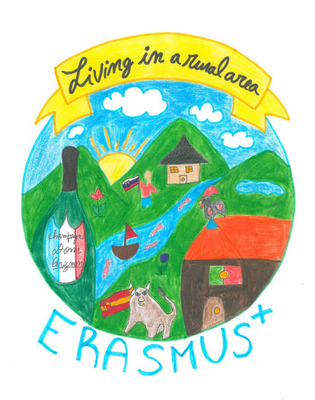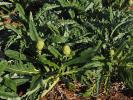
Erasmus+ Project: Living in a Rural Area
- Type Project
- Status Filled
- Execution 2020 -2022
- Assigned Budget 117.428,00 €
- Scope Europeo
- Autonomous community Cataluña
- Main source of financing Erasmus +
This project was born with the intention of motivating our students to value the rural environment where they live, champion environmental sustainability, and promote their local products. Therefore, four schools from France, Portugal, Slovakia, and Spain with similar backgrounds decided to collaborate.
Activities will include:
- Visit local businesses, such as olive mills, fruit processing plants, and farms, to learn about all the manufacturing, production, and distribution processes.
- learn to cook traditional dishes with local products following some recipes.
- take excursions to explore the surroundings and learn about biodiversity and its conservation.
- perform outdoor sports activities.
- exchange emails, videos, presentations, and create ebooks with all the information, using ICT tools such as Twinspace to develop strategic skills.
- create online posters to promote environmental protection.
The results of their work will be disseminated through social media platforms like Twinspace and other platforms. Cross-curricular teaching that uses English in more than one subject will help students connect knowledge from different areas. It will enhance the digital and language skills needed for collaboration and professional development.
Each school will have an Erasmus+ project team made up of several coordinators, each with different roles: creators of teaching materials, financial managers, communication and cooperation coordinators, and dissemination and evaluation coordinators. For better organization, we will create a shared folder on Google Drive where each coordinator will store their documents. The activities and teaching materials folder will include a calendar of all planned activities and a set of organized, ready-to-use spreadsheets. In the economics and management folder, spreadsheets will be used to control partner expenses. In the communication and cooperation folder, a Google Sites document will be created to serve as a global website for uploading all documentation produced during the project, as well as meeting documents and agreements between partners. Twinspace and other platforms will be used to publicize our project to the rest of the world. Finally, the dissemination and cooperation coordinator will have a folder with initial and final surveys to evaluate the achievement of objectives and gather feedback from all participants.
Our objectives are very clear: we want our students to be aware of the richness of their rural areas, encourage them to adopt healthy, environmentally friendly, and sustainable habits, to respect and protect nature, and appreciate local products. We also want to help them improve their digital skills while completing project tasks, using English as the language of communication. We also want to promote cooperation, solidarity, and teamwork to improve students' motivation and engagement and support their development of key competencies.
The impact will be measured at two levels: quantitative and qualitative. The first will be assessed through surveys and evaluation questionnaires. The second will focus on the change in students' motivation and self-confidence to become active citizens in promoting and defending their environment. The results verification and measurement system will be present at every stage of the project. The project's effects will be beneficial for the entire school community and local institutions.
On the one hand, both teachers and students will acquire a better command of English, improve their ICT skills, and improve their teamwork. As teachers, we will have the opportunity to learn about other school systems and, therefore, develop the pedagogical and didactic level of our schools by sharing new teaching methods and techniques. Through project-based work, we aim to develop our students' creativity, autonomy, and critical thinking. This will increase their self-confidence and responsibility. They will have the opportunity to make new international friends and become more aware of different cultures, geographies, and situations.
- Coordinator/entity name: Institut Julio Antonio
- Postal address: Avenida Comarcas Catalanes, 103, 43740 Móra d'Ebre
- Telephone: 977400121
- Institut Julio Antonio
- Agrupamento de Escolas General Serpa Pinto de Cinfães
- collège Marcel Pagnol
- zs s ms dolne oresany







